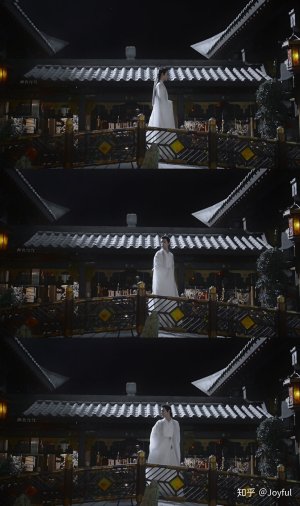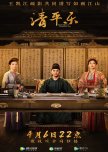Această recenzie poate conține spoilere
Writing is still the most important thing to a drama
First, the good things. The production quality of this drama is absolutely amazing. From the hairstyles to the dresses to the sets, it's so painstakingly accurate while being astonishingly beautiful. A goldmine for the history buffs to look through and gush over. The acting is also extremely good. Everyone uses their own voice and not a single one of them drops the ball. They all deserve a pay raise for that.
Then, the bad things. Which is mostly everything else. Which is mostly the story. It's, really really hard to get an audience of ordinary people to get behind on the "it's so hard to be king and have all that power and money and no freedom" storyline when you want to tell a story about royalty. It's really hard to be sympathetic on that line of Woe Is Me rhetoric. So it's up to the screenwriters to do the work and show the hardships when it comes to ruling and holding the position of emperor. Show how Song Ren Zong had to stop showing emotions as a young child, abandoning his hobbies and his favorite foods, holding back his own opinions to be a benevolent ruler and let others advise him, marrying someone he doesn't like and doesn't like him back just to bolster his position, can't even cry over his dead children because no weakness can be shown.
And do we get that from this drama? Not really. There's a lot of telling of how hard it is for the emperor of all lands under heaven, and not a lot of showing. Most of the screentime is focused on cramming as many historical persona references in there and have them gush about how perfect an emperor Zhao Zhen is. Which, as there are three different floods that caused three different famines during his reign, is undisputed by anyone. There's no complexity to his character that would be there for any state leader, present or past.
And the most egregious thing was, on the road further down to "Song Ren Zong Is Perfect And Has Done Nothing Wrong Ever", the writers veers into the "Woman Only Gets Abused By Husband Because She Did Something To Deserve It" road with the Princess Hui Rou storyline. Her entire life is a tragedy brought on by her father's need to give glory and good name to his birth mother, she is forced to marry someone she hates, her husband attempts to drug and rape her and ultimately hits her; and when she runs home crying, her father blames her for her abuse, offers no sympathy, and wants her to go back to the man who treated her so horribly. And because the story was so full on Song Ren Zong Can Never Make A Mistake, we are asked to be on the emperor's side, because he is always right. And that's some high class bullshit right there.
If they had just adapted straight from the novel and focused just on Princess Hui Rou, we could've had a story about how women in historical China, no matter how privileged and treasured they were, are still subject to the whims and wishes of the patriarchy (in this case the literal patriarch of all of China), which will always lead them into tragedy. But no, that story is apparently too small and we need a historical epic.
Then, the bad things. Which is mostly everything else. Which is mostly the story. It's, really really hard to get an audience of ordinary people to get behind on the "it's so hard to be king and have all that power and money and no freedom" storyline when you want to tell a story about royalty. It's really hard to be sympathetic on that line of Woe Is Me rhetoric. So it's up to the screenwriters to do the work and show the hardships when it comes to ruling and holding the position of emperor. Show how Song Ren Zong had to stop showing emotions as a young child, abandoning his hobbies and his favorite foods, holding back his own opinions to be a benevolent ruler and let others advise him, marrying someone he doesn't like and doesn't like him back just to bolster his position, can't even cry over his dead children because no weakness can be shown.
And do we get that from this drama? Not really. There's a lot of telling of how hard it is for the emperor of all lands under heaven, and not a lot of showing. Most of the screentime is focused on cramming as many historical persona references in there and have them gush about how perfect an emperor Zhao Zhen is. Which, as there are three different floods that caused three different famines during his reign, is undisputed by anyone. There's no complexity to his character that would be there for any state leader, present or past.
And the most egregious thing was, on the road further down to "Song Ren Zong Is Perfect And Has Done Nothing Wrong Ever", the writers veers into the "Woman Only Gets Abused By Husband Because She Did Something To Deserve It" road with the Princess Hui Rou storyline. Her entire life is a tragedy brought on by her father's need to give glory and good name to his birth mother, she is forced to marry someone she hates, her husband attempts to drug and rape her and ultimately hits her; and when she runs home crying, her father blames her for her abuse, offers no sympathy, and wants her to go back to the man who treated her so horribly. And because the story was so full on Song Ren Zong Can Never Make A Mistake, we are asked to be on the emperor's side, because he is always right. And that's some high class bullshit right there.
If they had just adapted straight from the novel and focused just on Princess Hui Rou, we could've had a story about how women in historical China, no matter how privileged and treasured they were, are still subject to the whims and wishes of the patriarchy (in this case the literal patriarch of all of China), which will always lead them into tragedy. But no, that story is apparently too small and we need a historical epic.
Considerați utilă această recenzie?






